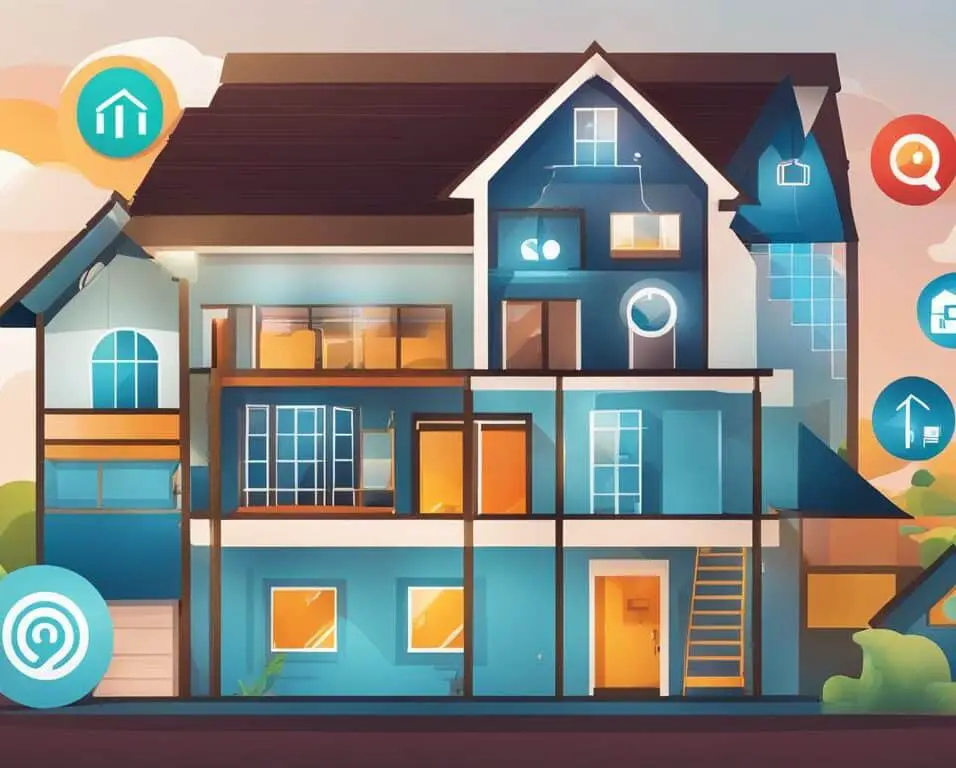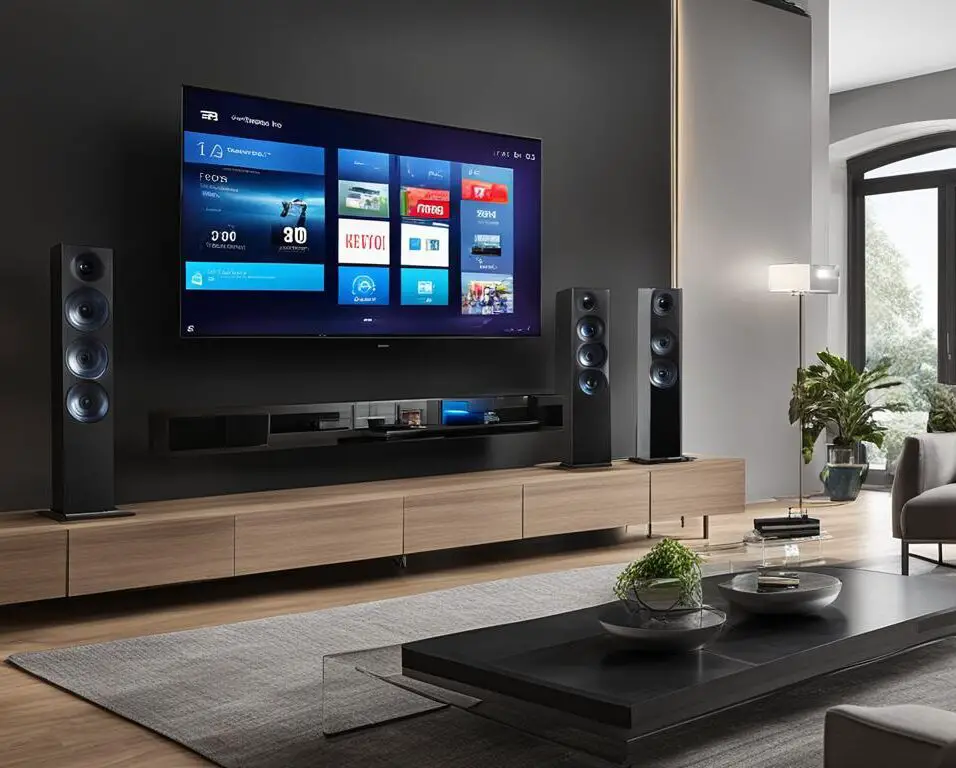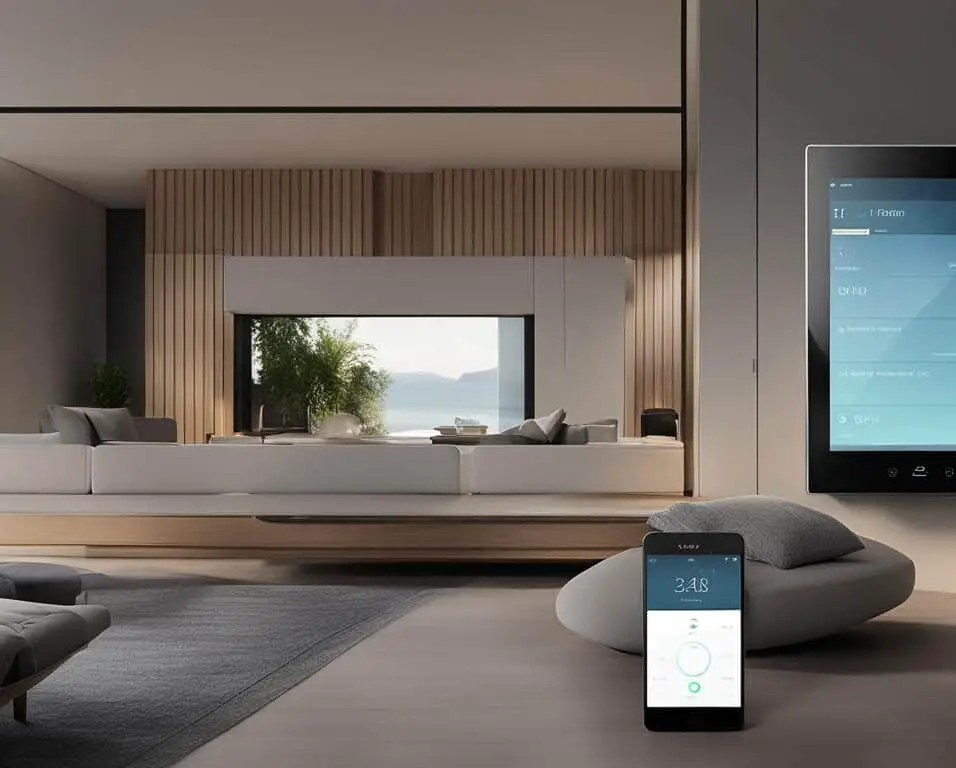The Rise of Smart Home Assistants
The integration of artificial intelligence (AI) technology into smart homes has revolutionized the way we live. AI-powered smart home assistants, such as Amazon Alexa, Google Home, and Apple Siri, have gained immense popularity. These voice-activated virtual assistants offer comprehensive control over various aspects of the home, including adjusting lights, thermostats, playing music, and more. They utilize AI algorithms to understand and adapt to user preferences, enhancing functionality and efficiency. Additionally, AI has significantly improved home security systems, with AI-powered security cameras providing real-time monitoring and alerts. The future of smart home assistants holds exciting possibilities, including intuitive home automation systems, personalized AI companions, and predictive AI algorithms.
Key Takeaways:
- Smart home assistants, powered by AI, have transformed the way we live by offering comprehensive control over various aspects of the home.
- These voice-activated virtual assistants enhance functionality and efficiency by understanding and adapting to user preferences.
- AI-powered security cameras have improved home security systems by providing real-time monitoring and alerts.
- The future of smart home assistants holds exciting possibilities, including intuitive home automation systems, personalized AI companions, and predictive AI algorithms.
- Smart home assistants have the potential to revolutionize the way we interact with our homes and enhance our daily lives.
The Benefits of Voice-Controlled Technology in Smart Homes
Voice-controlled technology has revolutionized the way we interact with smart homes, providing a seamless and intuitive user experience. With the help of artificial intelligence (AI) algorithms and voice-activated assistants, users can effortlessly control various devices and systems through simple voice commands. This hands-free control adds convenience and efficiency to daily routines, allowing homeowners to effortlessly manage their smart homes without the need for physical interactions.
One of the key advantages of voice-controlled technology is its ability to enable home automation. By integrating voice-activated assistants with smart home devices, users can synchronize multiple devices and manage them from a central hub. Whether it’s adjusting the lights, controlling the temperature, or even locking the doors, homeowners can effortlessly control their entire smart home ecosystem using just their voice. This level of interconnectedness enhances comfort and convenience, making everyday tasks easier and more enjoyable.
“Voice-controlled technology has transformed the way we interact with smart homes.”
Moreover, voice-controlled technology leverages the power of AI to optimize energy usage and personalize the user experience. AI algorithms can learn user preferences and patterns, adapting to individual needs and making informed adjustments to enhance energy efficiency. For example, a voice-controlled thermostat can learn a homeowner’s temperature preferences and adjust accordingly, ensuring optimal comfort while minimizing energy wastage. This not only saves homeowners money on their utility bills but also contributes to a more sustainable future.
| Benefits of Voice-Controlled Technology in Smart Homes | Summary |
|---|---|
| Seamless and intuitive user experience | Voice-controlled technology enables effortless control of smart home devices, enhancing convenience and efficiency. |
| Home automation | Integration with voice-activated assistants allows synchronized control of multiple devices, offering centralized management of the smart home. |
| Energy optimization and personalization | AI algorithms optimize energy usage based on user preferences, contributing to energy savings and a personalized user experience. |
The Growing Popularity and Adoption of Smart Home Assistants
The U.S. smart home assistant market has experienced significant growth and widespread adoption in recent years. According to the 2022 U.S. Smart Home Consumer Adoption Report, more than half of U.S. adults now own a smart home device beyond just a smart speaker. This includes devices like smart TVs, smart lights, locks, cameras, and more. The surge in smart home device adoption can be attributed to various factors, including the impact of the pandemic and the unique circumstances it created.
Furthermore, there is a strong correlation between smart speaker ownership and the ownership of other smart home devices. Approximately 80% of smart speaker owners also possess at least one additional smart home device. This data underscores the diverse nature of the smart home product category, with different devices experiencing varying rates of growth.
The report highlights the immense potential of voice assistants in smart home automation. As smart home assistants continue to evolve and improve, they offer homeowners unparalleled convenience, automation, and personalized experiences. With voice control at the forefront, smart home assistants are poised to revolutionize how we interact with our homes, making them smarter and more efficient than ever before.
FAQ
What is the role of AI in smart home assistants?
AI algorithms are utilized in smart home assistants to understand and adapt to user preferences, enhancing functionality and efficiency.
How do voice-controlled technology and AI algorithms improve home automation?
Voice-controlled technology enables users to control various devices and systems through simple voice commands. AI algorithms enhance energy usage optimization, personalization, and even predictive maintenance, resulting in improved comfort, energy savings, and interconnectedness.
What is the current market status of smart home assistants in the U.S.?
According to the 2022 U.S. Smart Home Consumer Adoption Report, over half of U.S. adults own a smart home device other than a smart speaker. There is also a high overlap between smart speaker owners and smart home device owners, with about 80% of smart speaker owners also owning at least one smart home device.
What are the benefits of voice-controlled technology in smart homes?
Voice-controlled technology adds convenience and efficiency to daily routines, allowing users to control devices through simple voice commands. It enables seamless home automation, synchronization of multiple devices, and improved comfort, energy savings, and interconnectedness.
Source Links
- https://energy5.com/the-integration-of-voice-assistants-in-smart-home-automation
- https://www.linkedin.com/pulse/rise-ai-smart-homes-glimpse-future-thumbstacktechnologies
- https://voicebot.ai/2022/06/20/over-half-of-u-s-adults-have-smart-home-devices-nearly-30-use-voice-assistants-with-them-new-report/








